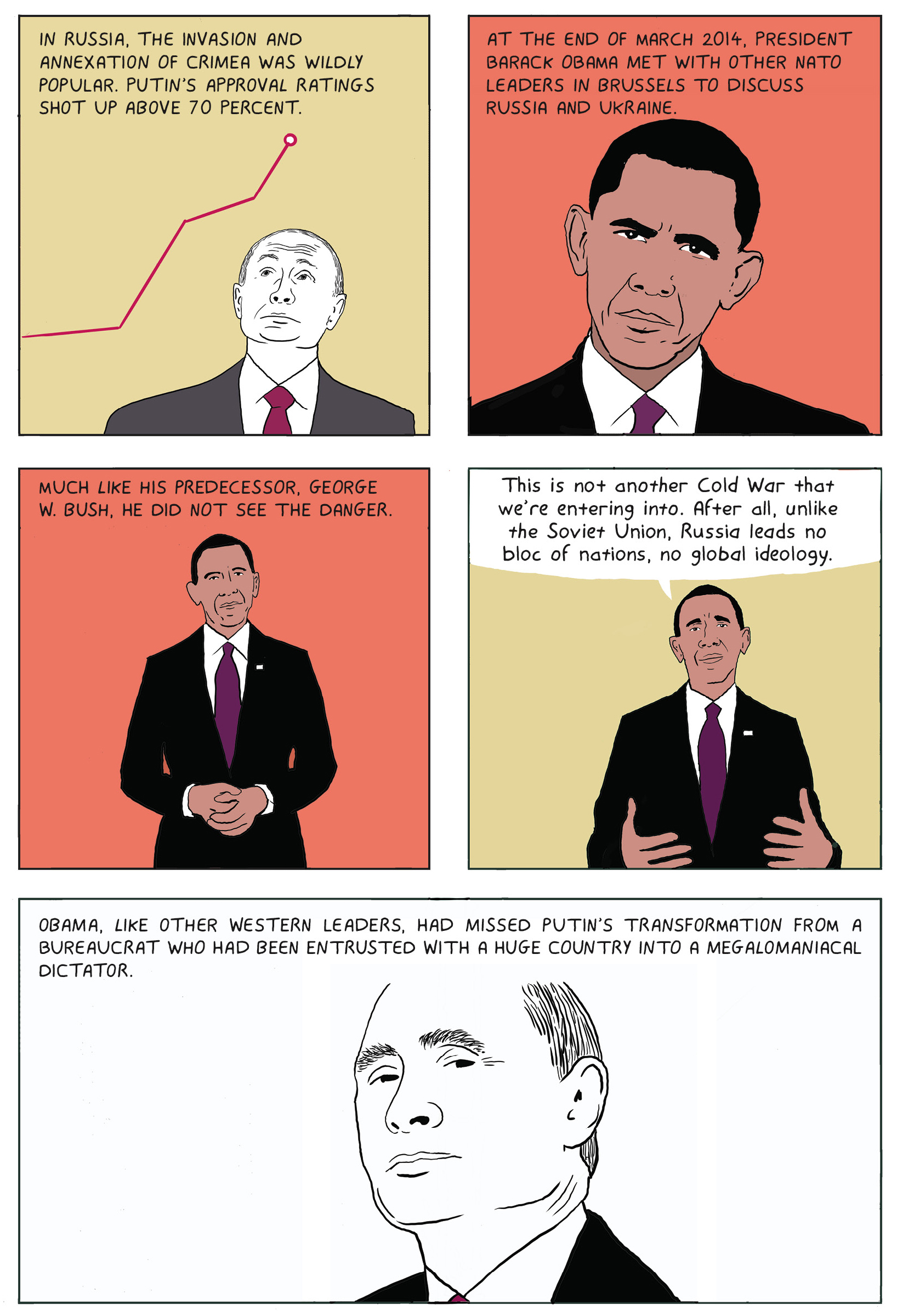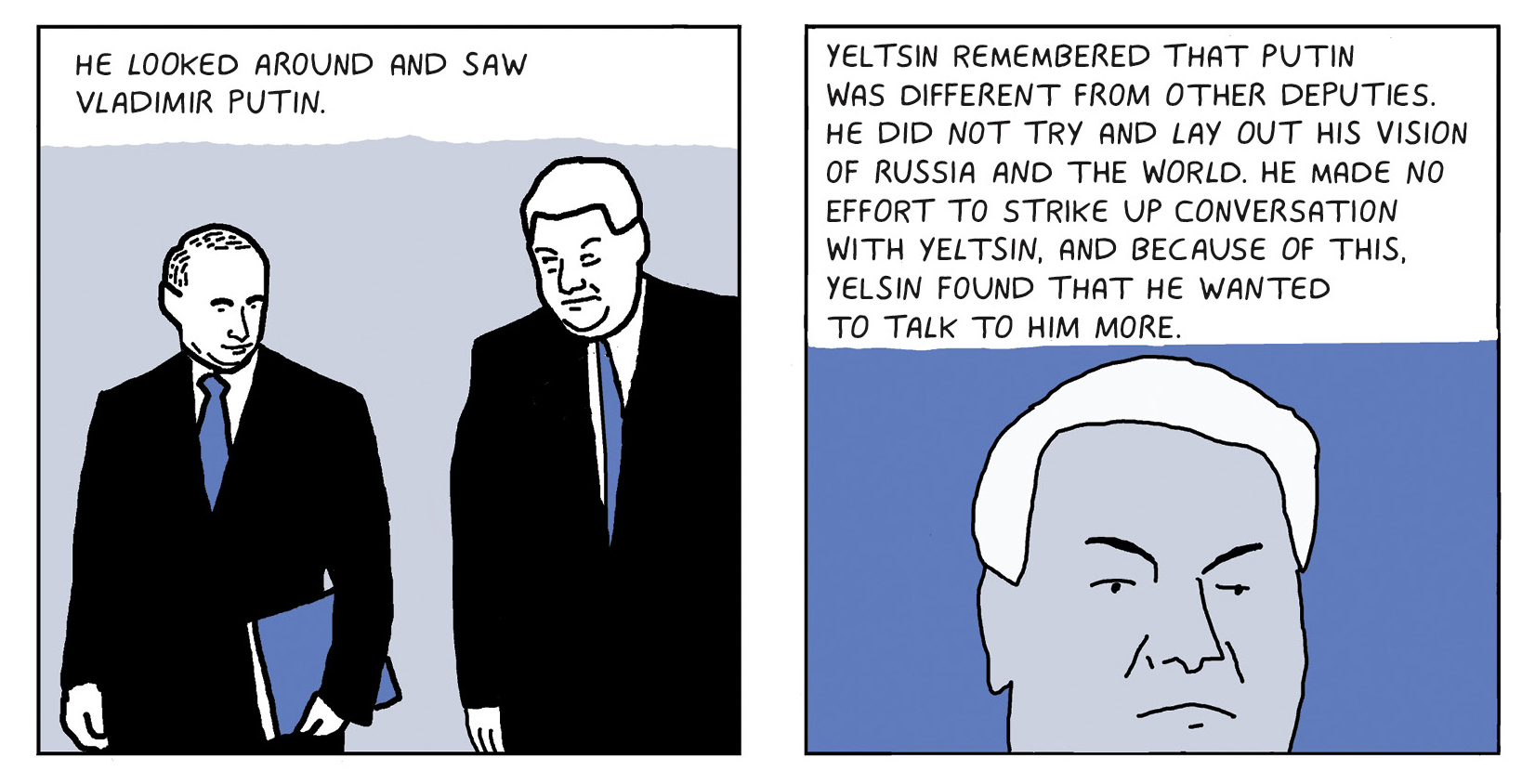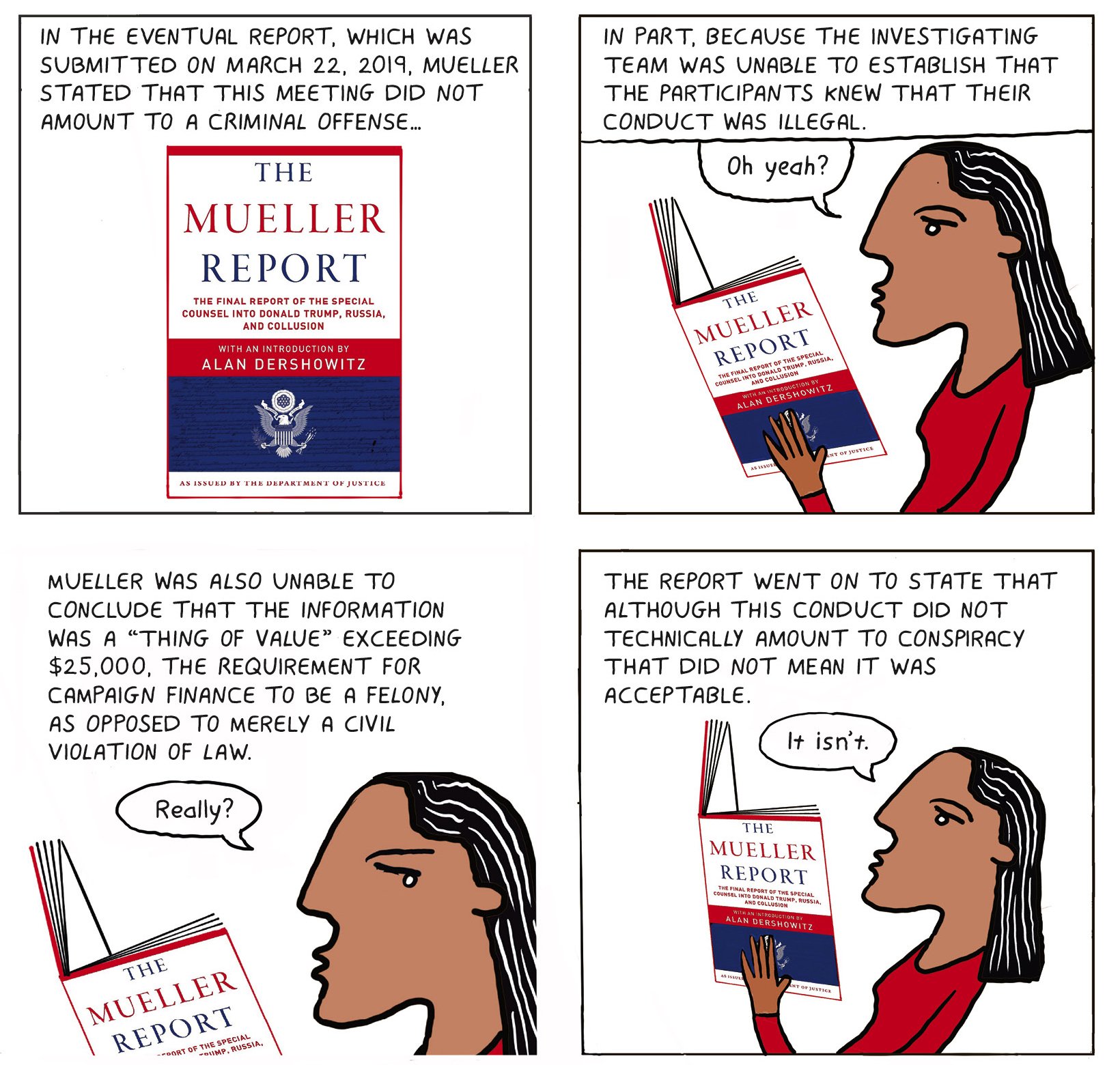Time makes fools of us all: When Putin’s Russia arrived in my mailbox for review a little while back, it was just another cartoon biography, albeit about one of the most disliked world leaders in the world today. But now, as I finally write the piece, it’s become about the man who initiated the first European military conflict since the 1990s, brought the possibility of nuclear holocaust back into our national conversation, and stepped up from being just another authoritarian dictator to the potential author of a third world war. Russian president Vladimir Putin’s invasion of the Ukraine has elevated him from a mere obsession of the political class to a world-historical evil.
Not that author Darryl Cunningham didn’t try to warn us. Putin’s Russia is all about how the calculating ex-KGB man isn’t just any bad actor on the world stage, but a unique threat to freedom and democracy at home and abroad. The book begins and ends with dire warnings about the unprecedented threat that Putin poses to the safety and security of the whole planet, and it presents a grimy laundry list of the man’s crimes and misdeeds, ranging from murder and corruption to building a cult of personality and chipping away at the very concept of freedom. You can’t accuse Cunningham of not taking Putin seriously.
Of course, the timeliness cuts both ways. While one can certainly make the case – Cunningham does, with vigor – that Western governments are full of apologists for Putin’s behavior for reasons of convenience, conflict avoidance, or economic complicity, he has certainly not been beloved by most of them. Since at least the early 2010s, he has been a bugaboo for American politicians, and practically everyone at any position of the political spectrum has been accused of being a pawn of Putin in our last two presidential elections. And if no one thought he was a saint before, the Ukraine invasion has presented pundits in the U.S. the opportunity to claim that he is the next Adolf Hitler, or, in some cases, worse than Hitler. So it’s fair to ask: Who is this book for?
Let’s get the aesthetics out of the way first: I have the same problem with Putin’s Russia, and with Cunningham’s work in general, as I do with a lot of the current wave of informational comic art, or cartoon journalism, or graphic non-fiction, or whatever you want to call it. While Cunningham occasionally comes up with inventive visual metaphors or creative presentations of his subjects, most of the book falls prey to the usual problem of just putting a perfunctory talking head in front of a block of text, or a cut-out abstraction of a relevant object alongside a wordy informational panel.
His art is competent, but its constant shift from a sort of journalistic fidelity to a cartoonish absurdism (another quality common to the genre) is distracting and ineffective, as is the choice to use juvenile-looking cartoon lettering. Are we meant to take the book seriously, or not? Is this directed at adults or teenagers? And most importantly, as I ask each time I encounter such a work, is there a reason that it needs to be in comic book form, rather than just a standard non-fiction text? The only answer I can come to, especially in light of the plenitude of well-written biographies and analysis of Putin in the form of non-illustrated books, is no.
Now, to the reason they keep me around: politics. I don’t claim to have any familiarity with Cunningham’s politics, but I have read two of his previous works – 2010’s Supercrash: How to Hijack the Global Economy and last year’s Billionaires: The Lives of the Rich and Powerful. I found much to like in these books, just as I found little openly objectionable in what is, in Putin’s Russia, a very serviceable biography of an important contemporary figure. But one problem I found with them, which they also share with Putin’s Russia, is that they focus excessively on individuals and their bad behavior, rather than on the systems that produce them and allow them to engage in such nefarious abuses of power. I find it too close to the Great Man theory of history, the pernicious effects of which still hobble the analysis of so many important events. The implication that things would be more or less okay in Russia today if only this bad man Putin had been dealt with somehow suffuses almost every page of the book.
There are many other problems with Putin’s Russia. It contains the requisite red-bashing without which we seem incapable of discussing the fall of the Soviet Union; many controversial subjects, from the politics of Putin opposition leader Alexei Navalny to Russia’s role in interfering with the 2016 elections, are essentially hand-waved away. (The latter is portrayed by the device of a cartoon figure reading the Mueller Report and making opinionated asides about it!) And, of course, the role of the United States in the arc of Putin’s rise to power, from being Yeltsin’s man to the complicity of American politicians and businessmen in supporting the Russian ‘oligarchs’ who enabled him year after year, is basically absent altogether. One might call this whataboutism, or one might honestly admit that these are important factors in telling the story and that withholding them amounts to misinformation and propaganda.
As always, the critic’s role is to discuss the work as it is, not as you wish it would be. But even if we ignore the problems of omission and de-emphasis in Putin’s Russia, we are left with an artistically unimpressive and inchoate biography of the Russian leader – and one that ends with a powerful exhortation to do something about him, while never really articulating what that something is, or who should do it. At this point, only fools defend Putin and his admittedly vile agenda, but the question remains: What now? The question was of some considerable substance before the invasion of Ukraine, and it is even more urgent now. “Take action,” ends Cunningham’s book. “Democracy or dictatorship? The choice is up to us.” But the choice isn’t up to us, or to anyone who is likely to read this book. The choice is with the people of Russia, and if we want to understand that choice, there are better books on how mass movement have overthrown bad leaders, where the emphasis is on the movement and not on the leader.










